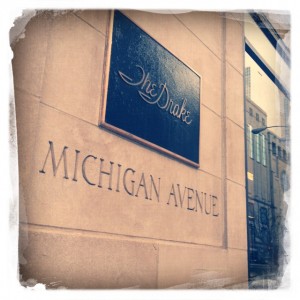Roundtable (Part 1): Career Stages and Conferencing Strategies
While at the Society for Cinema & Media Studies conference in Chicago this year, I found myself suddenly very aware of my recent career shift from dissertator and visiting assistant professor to tenure-track faculty. I kept thinking, “Wait. What am I supposed to be doing here? Should I be meeting up with far-flung friends and colleagues? Should I be networking? Should I be attending panels intended to enrich my research, or attending panels intended to enrich my teaching? Should I be expanding my horizons, or renewing my ties?” In talking with some of my fellow conference-goers over the weekend, I realized that many of us were dealing with similar tensions, and we all had different strategies. (Indeed, I’m apparently not the only one thinking about this, as Tim Havens so nicely articulates in this SCMS blog post!) It occurred to me that a roundtable presentation of perspectives from scholars at different stages of their careers would be really interesting and potentially very useful–much more so than my rambling thoughts! Talking this over with so many colleagues had me thinking differently about conferencing, and I hope the insights from the contributors below will have the same impact for everyone reading.
I’ve kept the contributors anonymous, so they could speak candidly and freely, but I’ve explained where each person is in their career, because I think that makes a difference. Each respondent was asked: What did you do during SCMS? What were your strategies, if you had them? And how do you think your decisions reflect where you are in your career? Today’s post offers the perspective of graduate students, tomorrow’s post addresses faculty perspectives. Please note that the contributors here are not meant to represent a full spectrum of SCMS participants–many perspectives are missing. I encourage you to contribute your own strategies in the comments. My takeaway from these conversations? There is no “right way” to conference; it’s all about being thoughtful about who and where you are, and what you want to get out of the experience.
Graduate Student at Dissertation Proposal Stage
Graduate Student, ABD
This year, I chose to focus my attendance in two ways. The first being panels whose topics overlapped with my own dissertation topic. That way I could make sure that my eternal fear that someone else has already written a comprehensive book on my exact dissertation topic does not come true (or at least I will know as soon as possible if it does). More often, I can pick up new ideas, information, or methods that could influence my thinking on the topic. My second focus was attending workshops on writing, teaching, and professionalization, since those things will hopefully (A) help me finish my dissertation and (B) speak more intelligently when I am on the job market about working as a professor. I also attended a workshop on higher education from the administrators’ perspective, which was especially interesting since that perspective is not necessarily something we are privy to as graduate students. In addition to the panels and workshops, I also appreciate the social aspects of the conference. I like attending the awards ceremony and reception, so that I can hear more about peoples’ work and put faces with names I have only known through reading their work. I also like to take advantage of breaks for meals and caffeine to catch up with friends who have graduated from my institution and moved on to teaching elsewhere, as well as with friends I have made at past SCMS conferences.
Now it’s your turn! What are some of your conference strategies, and how do you think they reflect where you are in your career? Chime in with comments!




It’s hard for me to separate “stage of career” with “state of technology” in thinking about how I conference now vs. then. My first international conferences still involved the quaintness of people bringing photocopies of their papers to hand out, for instance, and that was pre-Flow, pre-Antenna, pre-Facebook, where conferences really were the key place to find out who was working on what right now. So maybe I just know who is working on what much better now because I’ve been around, and/or maybe the Internet tube thingies help me find out before conferences. Either way, I now find conferences as way more helpful for meeting people, and catching up. They’re one of the key sites where we can put a human face on our field and make it personable, fun, energizing, and rewarding to do what we do.
Such a great point, Jonathan! One of the respondents for tomorrow’s post (which focuses on faculty experiences) expresses similar thoughts about the role technology plays in filling so many of the functions of conferencing! …stay tuned!
Thanks for these great posts! I think the point about relaxing and going with the flow is an important one, which I felt I was better able to do this year as well. I tried to plan a schedule in advance, but since it is really impossible to attend everything I’d want to, remaining open to new possibilities and spontaneous opportunities makes the whole experience much more enjoyable.